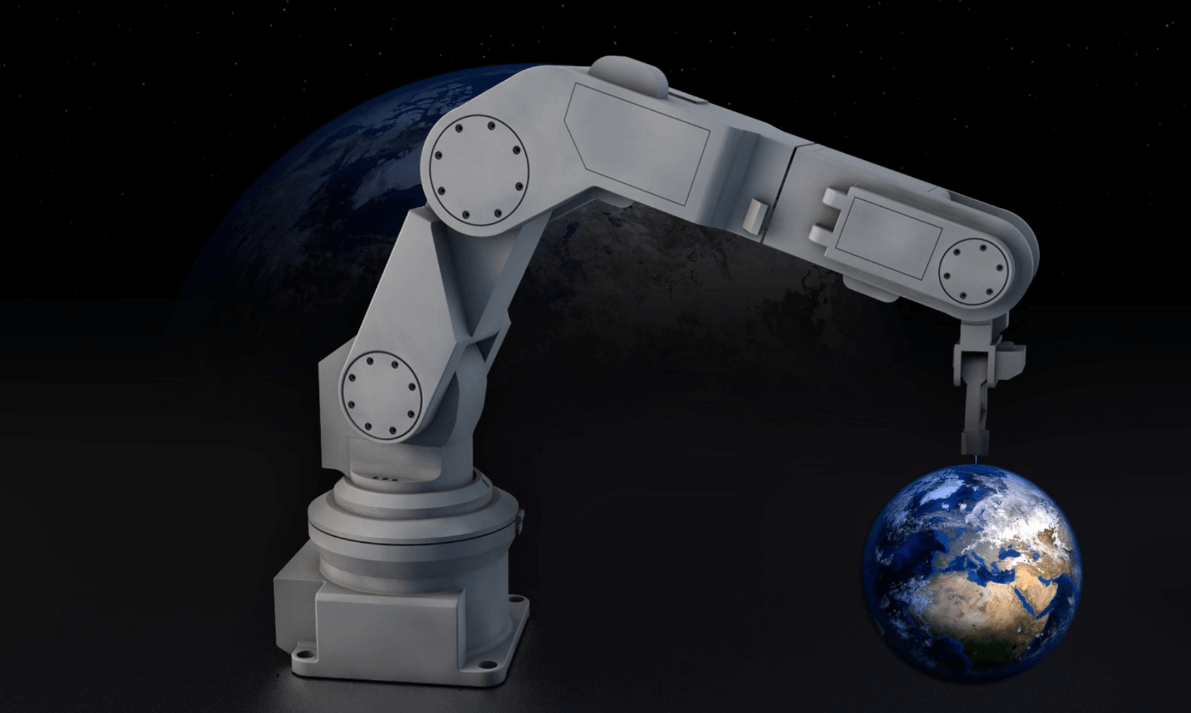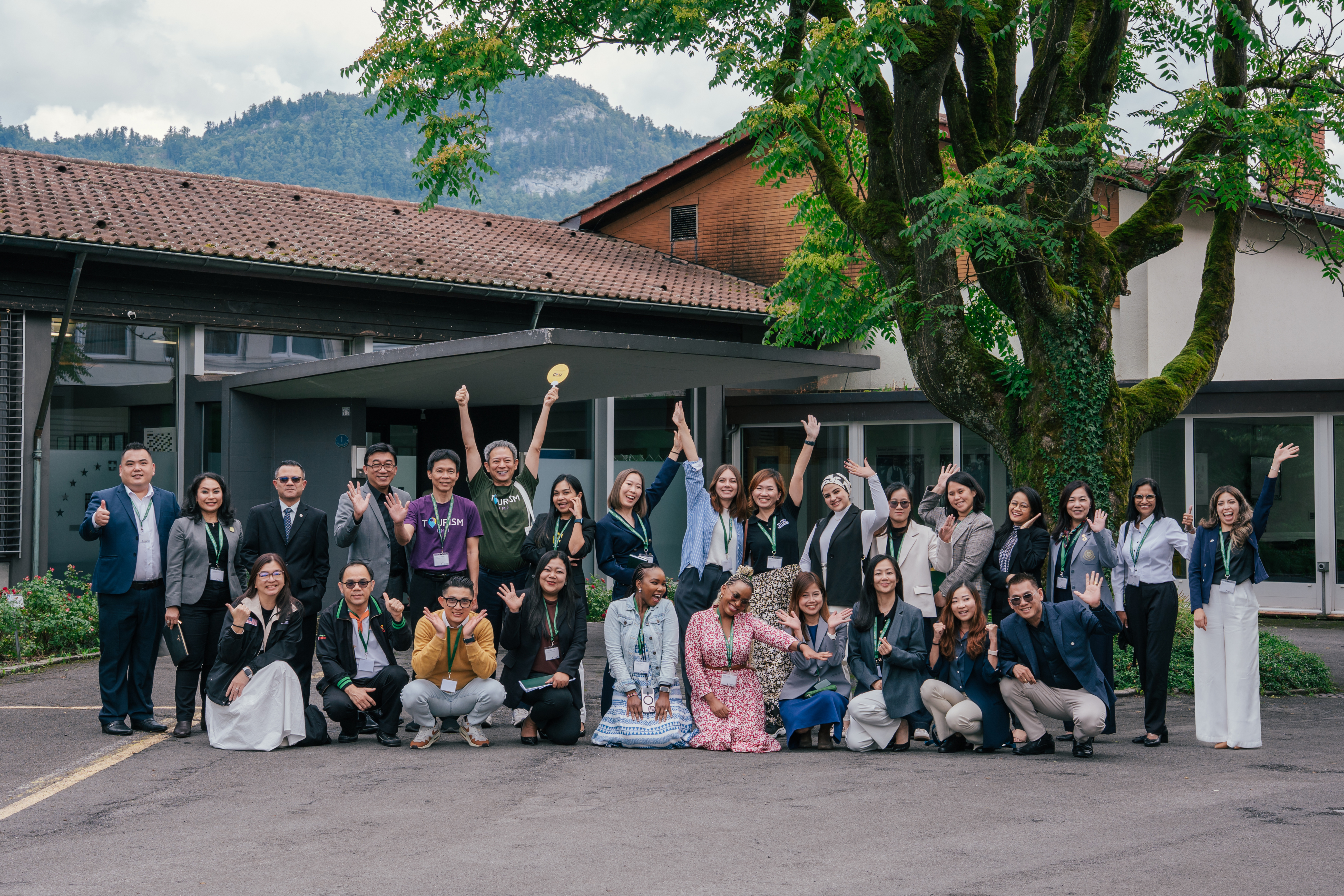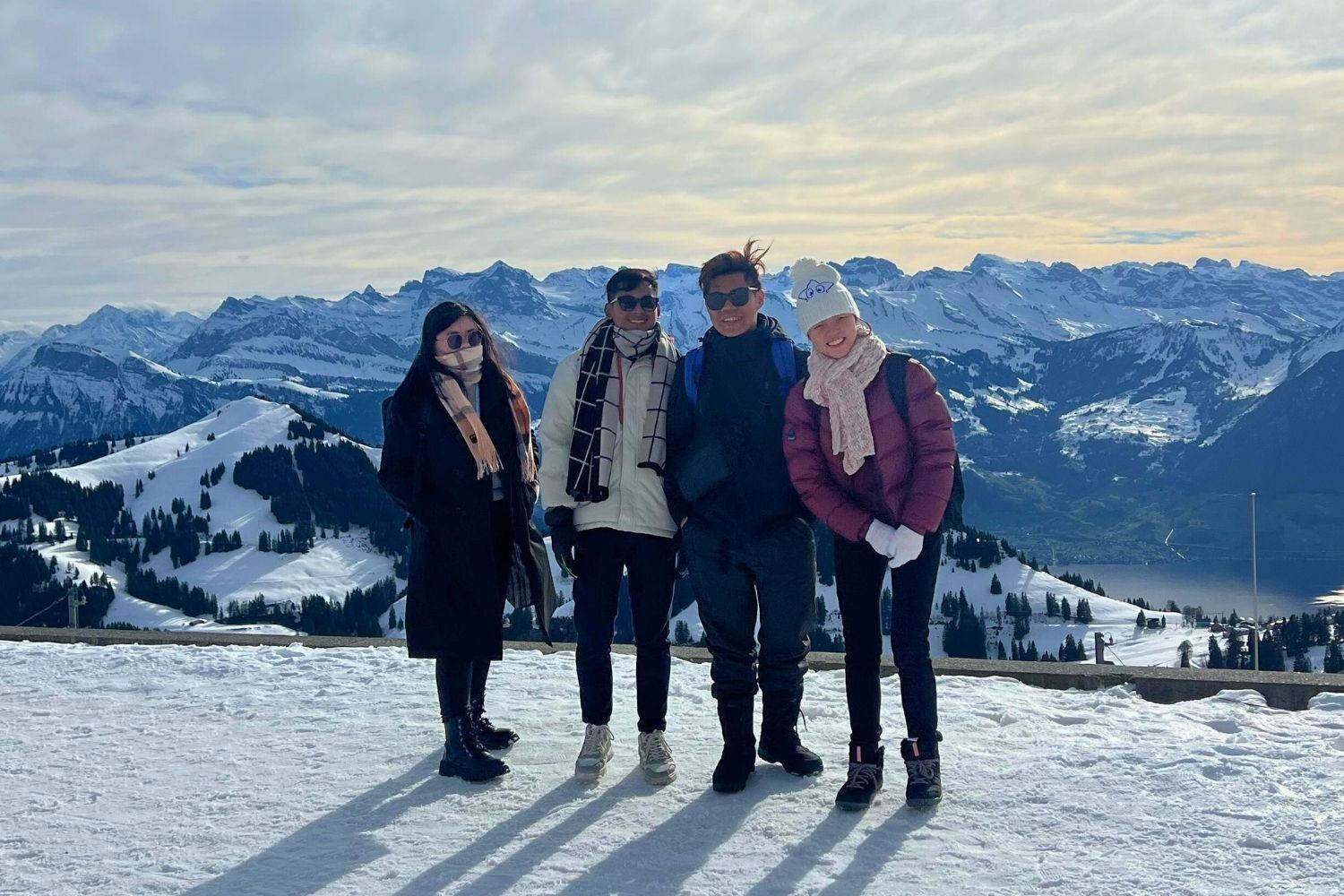The Future of Tourism - Progress or Dystopia?
In our latest look at the future trends within the tourism industry, we sit down with two IMI graduates who offer starkly contrasting views on the potential price of progress...
"For good ideas and true innovation, you need human interaction, conflict, argument, debate."
Margaret Heffernan - Entrepreneur and CEO
They say to truly understand a subject, you have to have considered at least two sides of it...
In this Socratic spirit, we decided to approach the next of our Future of Tourism articles through the medium of discussion and debate.
We sat down two IMI alumni with contrasting viewpoints on the potential risk/reward balance when it comes to the technological advances being seen in the tourism industry.
By hearing their opinions on everything from AI advancement to the dangers to human employment, we hoped to gain a more well-rounded appreciation of how the industry could operate in forthcoming years.
Of course, there are no clear right or wrong answers here and, as with our former students, there will be a wide spectrum of opinion.
However, what we are trying to emphasise is the importance of engaging with, thinking around and considering both sides of a topic.
In this way, it is to be hoped that some of the more worrying risks highlighted in the discussion can be averted, and the potential benefits maximised to the full.
How technology is already starting to change the way we travel.
To ensure that the topic was not too abstract, we presented our alumni with this hypothetical tourism experience taken from McKinsey's 2023 Future of Tourism report and then asked them to give their thoughts and reactions:
It’s 2035 and you start your long-awaited honeymoon to a tropical island. A virtual tour operator and a destination travel specialist booked your trip for you; you connected via videoconference to make your plans. Your itinerary was chosen with the support of generative AI, which analyzed your preferences, recommended personalized travel packages, and made real-time adjustments based on your feedback.
Before leaving home, you check in online and QR code your luggage. You travel to the airport by self-driving cab. After dropping off your luggage at the self-service counter, you pass through security and the biometric check. You access the premier lounge with the QR code on the airline’s loyalty card and help yourself to a glass of wine and a sandwich. After your flight, a pre-booked, self-driving cab takes you to the resort. No need to check in - that was completed online ahead of time (including picking your room and making sure that the hotel’s virtual concierge arranged for red roses and a bottle of champagne to be delivered).
While your luggage is brought to the room by a baggage robot, your personal digital concierge presents the honeymoon itinerary with all the requested bookings. For the romantic dinner on the first night, you order your food via the restaurant app on the table and settle the bill likewise. So far, you’ve had very little human interaction. But at dinner, the sommelier chats with you in person about the wine. The next day, your sightseeing is made easier by the hotel app and digital guide—and you don’t get lost! With the aid of holographic technology, the virtual tour guide brings historical figures to life and takes your sightseeing experience to a whole new level. Then, as arranged, a local citizen meets you and takes you to their home to enjoy a local family dinner. The trip is seamless, there are no holdups or snags.
Here are the two (very different) responses...

Sara Szoke
Graduated: 2023
Nationality: Hungarian
"I'm really not comfortable with the idea of a self-driving cab..."
As someone from a hospitality background, I still place a great deal of value on human interaction and feedback. While I appreciate the greater efficiency that automation and technology can bring, I have concerns about what some of these changes may mean for employment and job prospects in the future.
In an industry that was hit really hard by the Covid pandemic, I feel we should be doing all we can to bring people back into tourism and ensure there are jobs still there for those who may have lost them in the past few years. The more jobs that become automated or are taken by a machine, the less there are for human beings. This is a real concern and something that I think is going to have a massive impact on not just the tourism industry going forward, but all lines of work.
I also think that automation is great... until it isn't. For example, take the self-driving cabs or automated luggage check-in at the airport. These things make sense in theory, but if a machine breaks down or a mechanical part fails, you are stuck. While service professionals are not always the quickest or most logical, at least there is the possibility of a conversation with them where issues can be discussed and resolved. With a machine, the interaction is much more binary - it either operates as intended or it is faulty.
Generally speaking, I'm really not comfortable with the idea of a self-driving cab or any sort of non-human operated vehicle. I think we are in danger of sacrificing way too much control to technologies that the vast majority of us have very little understanding of. Of course, there are dangers on the roads today and humans are far from perfect drivers, but the potential for greater disaster with machines taking control seems far higher to me.
This idea of control also bothers me in a wider sense. AI technology seems outside a lot of international or governmental regulation at the moment and it is a relatively small group of people who control and drive it. We already give away so much of our data and personal information online for free and it seems crazy that there are not more laws or rules that protect the rights of the consumer here. Maybe we have a future where we have to decide whether we want to be controlled by politicians or 'tech bros' and I'm really not sure which of these is the more worrying option.
But to come back to tourism, it really is all about the people to me. The only real mention of a human being in the McKinsey report example is the "local citizen" who takes the honeymooners for a "local family dinner". The idea of humans in this equation as being no more than another tourism experience is symptomatic of the wider de-humanising of this future vision. When I think of my best travel and tourism experiences, all my fondest memories are to do with the people. From great service at a hotel or restaurant to interacting with local people and getting to understand their culture and traditions, this is one of the main selling points of tourism to me.
While I'm sure this automated, tech-heavy, human-lite version of future travel would be much more efficient and profitable for the company's operating it, it just all seems a bit soulless to me and not really the type of experience I would enjoy or benefit from.

Wilton Carvalho
Graduated: 2016
Nationality: Angolan/Portuguese
"I think you have to embrace the future, or risk getting left behind..."
The future is inevitable and, as people working in the industry, I think it is our job to anticipate it and stay on top of all developments. If you look at the world's most successful companies - the Googles and Teslas of this world - they have all been ahead of the curve when it comes to predicting the future and helping lead this progress forward.
As a tourist and traveller, my life is now so much easier than it was 15 years ago. Online check-in, virtual tours of hotels and resorts, comparison websites to find the best accommodation and flight deals - these have all made the tourist's life simpler and more efficient.
When it comes to employment, I think it's inevitable that some jobs will be made redundant by technology, but there will always be the need for humans in the hospitality and tourism business. Rather than being threatened by technology, I think employees in the sector can embrace the ways it can make their lives easier and help them improve service standards.
Take ordering a meal via a restaurant app, this ensures that the order gets to the kitchen correctly and efficiently. Having worked in restaurants, I know how stressful it can be during a busy service. If the waiting staff have one less thing to worry about, they can spend more time focusing on delivering an excellent customer experience and ensuring all the other guest needs are attended to.
Of course, it's up to employers and tourism brands to ensure that technology is introduced responsibly into their business functions. But I think this will become a self-regulating system. We have seen in the past that companies who rush to introduce cost-cutting measures at the expense of their employee satisfaction may see some short-term financial benefit but long-term do not tend to prosper.
In an industry that is as people-orientated as tourism, I see a natural balance evolving. The introduction of technology to streamline processes, improve customer experience and enhance services, but the maintaining of people and human interactions as the beating-heart of the business.
So for this reason, I do not see the 2035 travel experience described as something to worry about. I think you have to embrace the future or risk getting left behind. Technology never stops evolving and, as it evolves, the type of work that we as humans do also evolves - this has been happening for many years now. The companies and workers that adapt quickest will be the ones to prosper. This is the challenge we all face and I for one look forward to taking it on!

What will be the real price of progress?
So, two starkly contrasting opinions here, but some very interesting points made by both.
It would seem foolish to dismiss Sara's concerns about what advancements in automation could mean for jobs and people's livelihoods. It is human nature to embrace any new shiny toy and something as exciting as technology that offers great financial savings could be hard for companies to resist.
However, rushed, short-term deployment could have a devastating impact on employees and wider company morale. Introducing change for the sake of change is rarely a successful strategy and without longer-term consideration of how technology can be best-utilised to complement, rather than replace, existing workforces, it does not seem sustainable in a wider societal sense.
Which is not to ignore Wilton's points about the many advantages to the consumer that technology can bring (and already has in many cases). It's certainly true that it is hard to row-back on progress once technologies have been introduced to the open market. This being the case, the challenge for the tourism industry is at what pace, and how best, to implement these new resources.
As humans, we would like to believe that we are (to a certain extent) irreplaceable and that a machine will never be able to perform our role in the same way that we do. However, it is dangerous to become over-complacent here. Market economics have rarely taken much account of sentiment or history - if a machine can be proven to be more efficient and suitably reliable, it will become the more logical option.
This is where we have decisions now to make as human beings - we are still the masters of our own destiny (for the time being at least). How to balance technology, human resources and productivity while remaining competitive will be a challenge for all companies in forthcoming years.
As hospitality professionals, we know the special place that the people hold in this industry. Both our alumni agree on this at least. It is to be hoped that wherever the cards fall in the tourism industry going forward, the one that represents the human impact is not lost.
Looking to take the first steps in your future management career? Contact us below to find out more about our study options...



